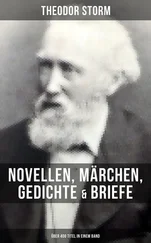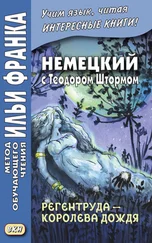––––––––

NOVEMBER 21.
She does not feel, she does not know, that she is preparing a poison which will destroy us both; and I drink deeply of the draught which is to prove my destruction. What mean those looks of kindness with which she often—often? no, not often, but sometimes, regards me, that complacency with which she hears the involuntary sentiments which frequently escape me, and the tender pity for my sufferings which appears in her countenance?
Yesterday, when I took leave she seized me by the hand, and said, "Adieu, dear Werther." Dear Werther! It was the first time she ever called me dear: the sound sunk deep into my heart. I have repeated it a hundred times; and last night, on going to bed, and talking to myself of various things, I suddenly said, "Good night, dear Werther!" and then could not but laugh at myself.
––––––––

NOVEMBER 22
I cannot pray, "Leave her to me!" and yet she often seems to belong to me. I cannot pray, "Give her to me!" for she is another's. In this way I affect mirth over my troubles; and, if I had time, I could compose a whole litany of antitheses.
––––––––

NOVEMBER 24.
She is sensible of my sufferings. This morning her look pierced my very soul. I found her alone, and she was silent: she steadfastly surveyed me. I no longer saw in her face the charms of beauty or the fire of genius: these had disappeared. But I was affected by an expression much more touching, a look of the deepest sympathy and of the softest pity. Why was I afraid to throw myself at her feet? Why did I not dare to take her in my arms, and answer her by a thousand kisses? She had recourse to her piano for relief, and in a low and sweet voice accompanied the music with delicious sounds. Her lips never appeared so lovely: they seemed but just to open, that they might imbibe the sweet tones which issued from the instrument, and return the heavenly vibration from her lovely mouth. Oh! who can express my sensations? I was quite overcome, and, bending down, pronounced this vow: "Beautiful lips, which the angels guard, never will I seek to profane your purity with a kiss." And yet, my friend, oh, I wish—but my heart is darkened by doubt and indecision—could I but taste felicity, and then die to expiate the sin! What sin?
––––––––

NOVEMBER 26.
Oftentimes I say to myself, "Thou alone art wretched: all other mortals are happy, none are distressed like thee!" Then I read a passage in an ancient poet, and I seem to understand my own heart. I have so much to endure! Have men before me ever been so wretched?
––––––––
NOVEMBER 30.
I shall never be myself again! Wherever I go, some fatality occurs to distract me. Even to-day alas—for our destiny! alas for human nature!
About dinner-time I went to walk by the river-side, for I had no appetite. Everything around seemed gloomy: a cold and damp easterly wind blew from the mountains, and black, heavy clouds spread over the plain. I observed at a distance a man in a tattered coat: he was wandering among the rocks, and seemed to be looking for plants. When I approached, he turned round at the noise; and I saw that he had an interesting countenance in which a settled melancholy, strongly marked by benevolence, formed the principal feature. His long black hair was divided, and flowed over his shoulders. As his garb betokened a person of the lower order, I thought he would not take it ill if I inquired about his business; and I therefore asked what he was seeking. He replied, with a deep sigh, that he was looking for flowers, and could find none. "But it is not the season," I observed, with a smile. "Oh, there are so many flowers!" he answered, as he came nearer to me. "In my garden there are roses and honeysuckles of two sorts: one sort was given to me by my father! they grow as plentifully as weeds; I have been looking for them these two days, and cannot find them. There are flowers out there, yellow, blue, and red; and that centaury has a very pretty blossom: but I can find none of them." I observed his peculiarity, and therefore asked him, with an air of indifference, what he intended to do with his flowers. A strange smile overspread his countenance. Holding his finger to his mouth, he expressed a hope that I would not betray him; and he then informed me that he had promised to gather a nosegay for his mistress. "That is right," said I. "Oh!" he replied, "she possesses many other things as well: she is very rich." "And yet," I continued, "she likes your nosegays." "Oh, she has jewels and crowns!" he exclaimed. I asked who she was. "If the states-general would but pay me," he added, "I should be quite another man. Alas! there was a time when I was so happy; but that is past, and I am now—" He raised his swimming eyes to heaven. "And you were happy once?" I observed. "Ah, would I were so still!" was his reply. "I was then as gay and contented as a man can be." An old woman, who was coming toward us, now called out, "Henry, Henry! where are you? We have been looking for you everywhere: come to dinner." "Is he your son?" I inquired, as I went toward her. "Yes," she said: "he is my poor, unfortunate son. The Lord has sent me a heavy affliction." I asked whether he had been long in this state. She answered, "He has been as calm as he is at present for about six months. I thank Heaven that he has so far recovered: he was for one whole year quite raving, and chained down in a madhouse. Now he injures no one, but talks of nothing else than kings and queens. He used to be a very good, quiet youth, and helped to maintain me; he wrote a very fine hand; but all at once he became melancholy, was seized with a violent fever, grew distracted, and is now as you see. If I were only to tell you, sir—" I interrupted her by asking what period it was in which he boasted of having been so happy. "Poor boy!" she exclaimed, with a smile of compassion, "he means the time when he was completely deranged, a time he never ceases to regret, when he was in the madhouse, and unconscious of everything." I was thunderstruck: I placed a piece of money in her hand, and hastened away.
"You were happy!" I exclaimed, as I returned quickly to the town, "'as gay and contented as a man can be!'" God of heaven! and is this the destiny of man? Is he only happy before he has acquired his reason, or after he has lost it? Unfortunate being! And yet I envy your fate: I envy the delusion to which you are a victim. You go forth with joy to gather flowers for your princess,—in winter,—and grieve when you can find none, and cannot understand why they do not grow. But I wander forth without joy, without hope, without design; and I return as I came. You fancy what a man you would be if the states general paid you. Happy mortal, who can ascribe your wretchedness to an earthly cause! You do not know, you do not feel, that in your own distracted heart and disordered brain dwells the source of that unhappiness which all the potentates on earth cannot relieve.
Let that man die unconsoled who can deride the invalid for undertaking a journey to distant, healthful springs, where he often finds only a heavier disease and a more painful death, or who can exult over the despairing mind of a sinner, who, to obtain peace of conscience and an alleviation of misery, makes a pilgrimage to the Holy Sepulchre. Each laborious step which galls his wounded feet in rough and untrodden paths pours a drop of balm into his troubled soul, and the journey of many a weary day brings a nightly relief to his anguished heart. Will you dare call this enthusiasm, ye crowd of pompous declaimers? Enthusiasm! O God! thou seest my tears. Thou hast allotted us our portion of misery: must we also have brethren to persecute us, to deprive us of our consolation, of our trust in thee, and in thy love and mercy? For our trust in the virtue of the healing root, or in the strength of the vine, what is it else than a belief in thee from whom all that surrounds us derives its healing and restoring powers? Father, whom I know not,—who wert once wont to fill my soul, but who now hidest thy face from me,—call me back to thee; be silent no longer; thy silence shall not delay a soul which thirsts after thee. What man, what father, could be angry with a son for returning to him suddenly, for falling on his neck, and exclaiming, "I am here again, my father! forgive me if I have anticipated my journey, and returned before the appointed time! The world is everywhere the same,—a scene of labour and pain, of pleasure and reward; but what does it all avail? I am happy only where thou art, and in thy presence am I content to suffer or enjoy." And wouldst thou, heavenly Father, banish such a child from thy presence?
Читать дальше













